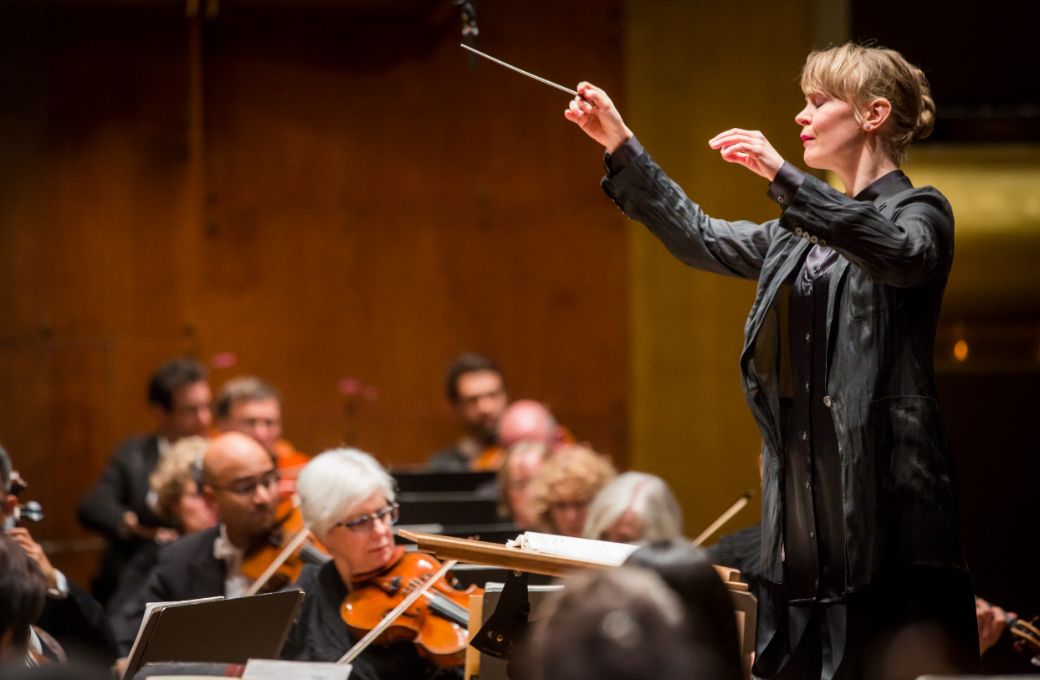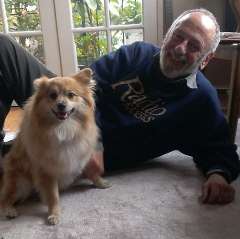The best moments of Susanna Mälkki's concert with the LA Phil came at the beginning, Brahms' Academic Festival Overture, and at the end of Daniil Trifonov's performance of the Second Piano Concerto. Mälkki set a nice relaxed pace for the overture that shone with the music's many colors, the strings were rich with humanity, and the orchestra responded quickly, from the initial brass chorale through the build-up into the Allegro; overall it was a little sober but her broad phrasing brought out all the music's beauty.

Mälkki introduced Enno Poppe's 20-minute Fett (German for “fat”) from the stage, explaining that the music would describe “the many different forms that fat can take” and warned about a surprise ending. At the time he was writing Fett, another in a series which has included Holz (Wood), Filz (Felt), Brot (Bread) and Salz (Salt), Poppe commented that he was going further than ever before with micro-tonalities for orchestra; a provocative if indulgent experiment that reflected the prestigious troika of orchestras in Helsinki, Munich and Los Angeles that had commissioned the work.
Consisting primarily of endlessly shifting microtonal chord textures which might be mistaken for wavering pitch, and only a few snatches of real melodies, the music started off gently like the bleating sheep in Richard Strauss' Don Quixote, or perhaps the breathing of organ bellows, definitely something alive. There were no percussion instruments but plenty of ethereal chime-like sounds. At the eight-minute mark, intimations of a tune were seized upon monolithically by the brass, followed by a sad, dolorous song as sung by a drunken sailor, and later a theme in the cellos. Two minutes before the last length of Poppe’s musical fabric had been cut, two beeps from a cell phone in the front rows of the audience – in time and in tune! – signaled a movement towards the climax, a relentless series of brass chords that ended suspended in air.
Brahms' Piano Concerto no. 2 in B flat major after intermission seemed like an afterthought at times, pleasantly sprawling enough but lacking in energy and generally uneventful. The orchestra played at a generalized forte and, despite frequent entreaties from the podium, never seemed to waver much in their pace. Trifonov is a wonderful pianist who did some magical things and principal cellist Robert deMaine played almost too brilliantly in the slow movement, but there was not much chemistry except when deMaine and Trifonov played the Largo from Chopin's Cello Sonata with swatches of luxurious poetry as their encore.


